General
Dentistry
General Dentistry Services
East Ridge Dental is passionate about providing comprehensive care to every member of your family and it starts with prevention. Our compassionate, well-educated hygienists will walk with you on your oral health care journey, giving you the best cleaning catered specifically to you and your needs. Our thorough, yet conservative dentists are there to give you the best recommendations for any treatment you may need or cosmetic request you may have. Our team is dedicated to giving you the best plan for whatever stage of life you are in.
Sometimes, even the best preventative care cannot always eliminate the possibility that damage or tooth decay may occur.
East Ridge Dental specializes in restorative dental services for all your needs. When it comes to general dentistry, we can help with tooth-colored fillings, same-day crowns, extractions, and root canals. We are passionate about providing comprehensive restorative services so whatever your needs may be, we have you covered. Some of the most common dental services are listed below.

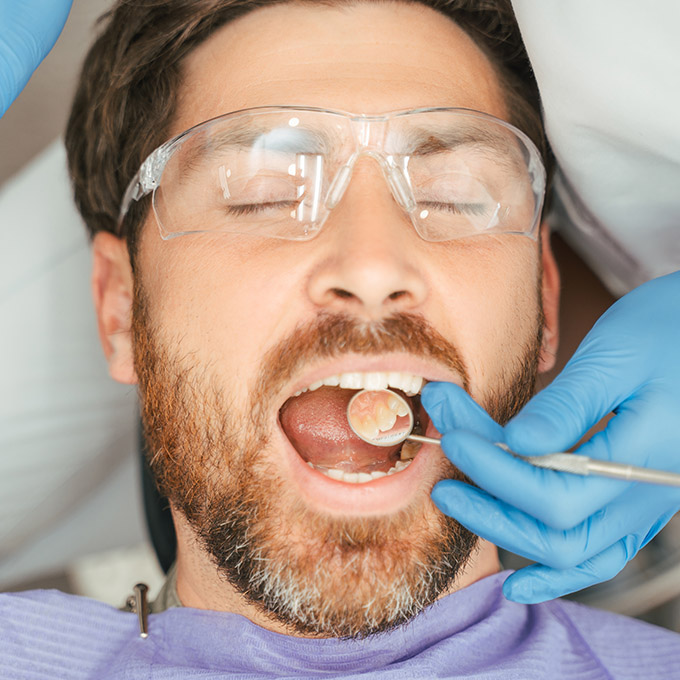
Dental Cleanings (prophylaxis)
Preventative dental care is essential for maintaining a healthy smile. Regular dental cleanings, also known as dental prophylaxis, play a crucial role in maintaining a healthy smile. Performed by a professional dental hygienist, these cleanings are vital for removing buildup, or plaque, from the surfaces of your teeth. If left unaddressed, plaque buildup can lead to cavities, gum disease, and bad breath.
Frequently Asked Questions
How often should I have a dental cleaning?
It’s generally recommended to have a dental cleaning every six months. However, the frequency may vary depending on your oral health needs. Your dentist and dental hygienist will determine the appropriate schedule for your cleanings.
Can dental cleanings whiten my teeth?
While dental cleanings can remove surface stains, they are not specifically designed for teeth whitening. If you’re interested in teeth whitening, discuss your options with your dentist.
Dental Fillings
With dental fillings, our dentists can repair and reinforce a damaged tooth, potentially saving it from extraction. At East Ridge Dental, our dentists offer two kinds of fillings: amalgam (silver) and composite (tooth-colored).
Frequently Asked Questions
Are dental fillings painful?
Your comfort is our top priority so we’ll apply a local anesthetic before your dentist begins treatment. Once your fillings have been applied, some mild discomfort is normal, but will begin to fade very soon. If you’re experiencing pain that doesn’t go away, please call our office by dialing (605) 373-0245. We will do everything we can to help alleviate your discomfort and solve any issues you may be having.
How long does numbness last after a dental filling?
The effects of local anesthesia usually wear off after one to three hours. However, the numbness you experience after a dental filling will vary based on a number of factors including your unique physiology and how much anesthetic was administered. Our dentists recommend that you wait until the numbness has completely passed before eating or drinking anything, especially items that are hot, to avoid injuring your mouth.
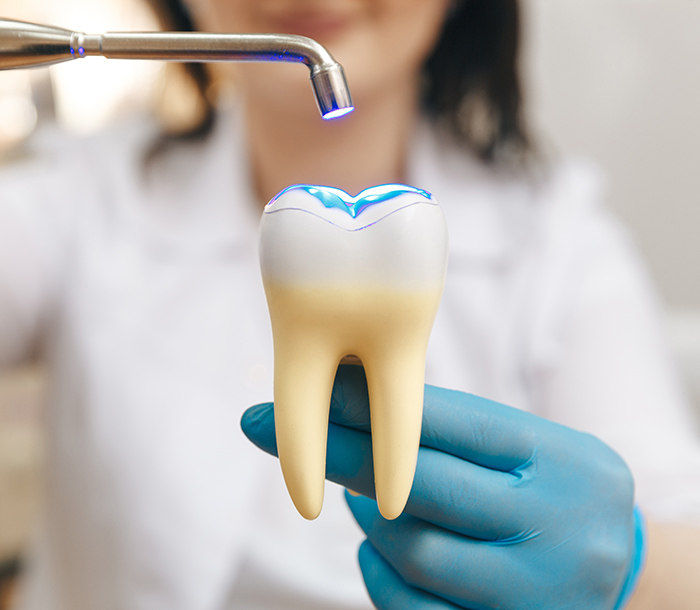
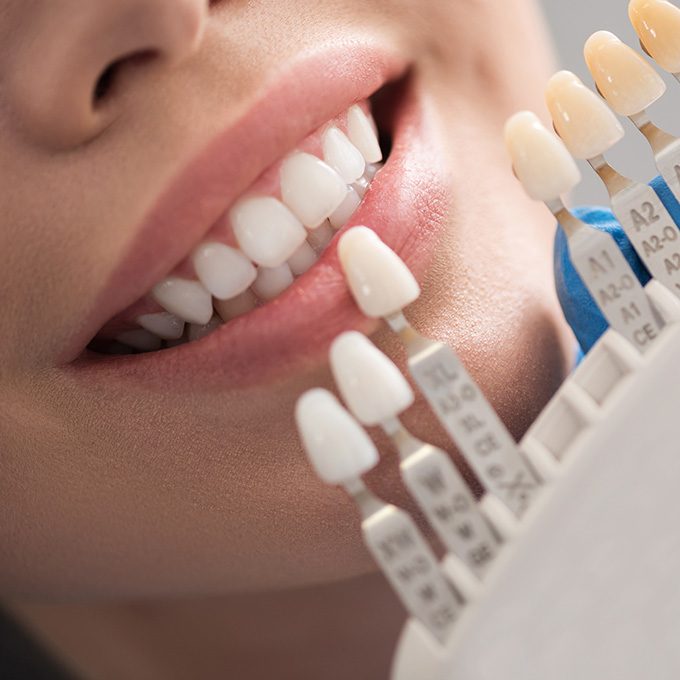
Crowns
A crown is a permanent covering that is built to fit over an existing tooth damaged by decay or trauma. Damaged or cracked teeth are protected from further harm, and your smile is restored to its full potential. Crowns are made from a variety of different materials. These materials may include porcelain, gold, E.MAX, or Zirconia. East Ridge Dental is proud to offer patients the cutting edge technology of “same day” crowns. Here at East Ridge Dental we offer our patients CEREC CAD/CAM Technology, (a system of four-dimensional imaging, and an actual computerized crown mill in office). Dr. Reckling, Dr. Seaborn, Dr. Jensen and their highly trained assistants can use this system to scan your tooth and mill the crown in the office. This ensures that your crown fits well, looks great, and saves you time away from work or family obligations.
Root Canals
Root canal treatment, also called root canal therapy and endodontics, is a process for completely removing damaged and infected tooth material. Once all the affected material is removed, the tooth is filled with medication and a dental filling, to help prevent future reinfection and hold the tooth’s form. Afterward, your dentist may choose to cover the tooth with a dental crown to further reinforce and restore it to full form and function.
Benefits of Root Canal Treatment
Due to unfortunate stereotypes and rumors about outdated dental practices, certain patients may feel averse to undergoing root canal treatment. However, undergoing root canal treatment when necessary offers significant benefits including:

Stops the spread of infection

Alleviates pain

Saves the tooth from extraction

Repairs damage

Prevents the need for more costly and invasive procedures in the future

Protects your overall oral health
Frequently Asked Questions
Is a root canal better than extracting a tooth?
In the case where a tooth can be saved with a root canal, it is generally advised to do that rather than extracting. Preserving your natural tooth is better for your overall oral and systemic health, can decrease the potential for complications with future treatment when replacing the tooth, and it is more cost-effective in the long run if you plan to replace the missing tooth.
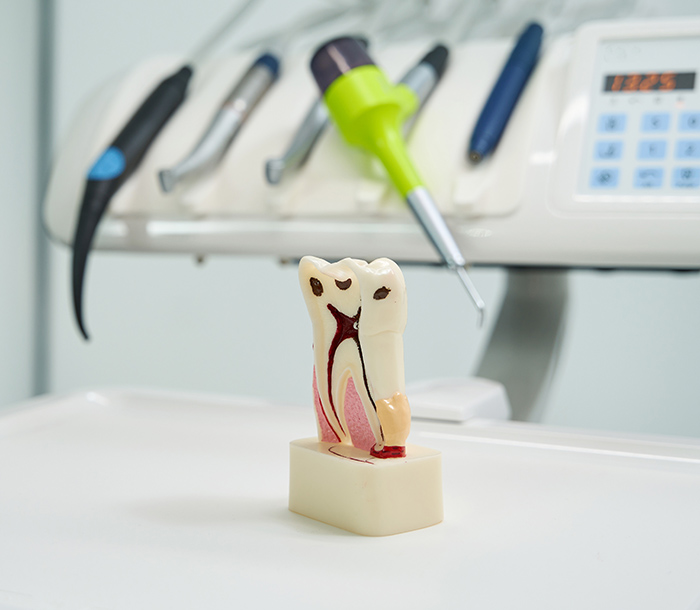
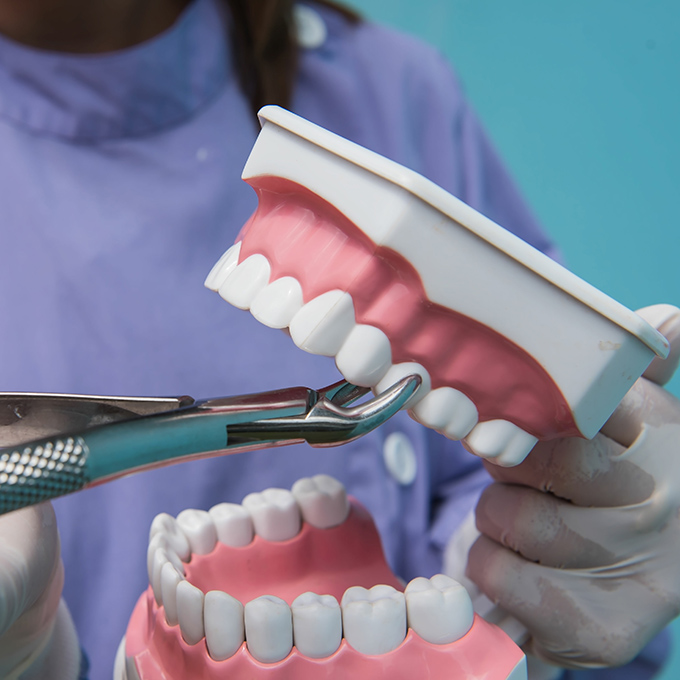
Extractions
Tooth extraction refers to the professional process of safely removing teeth from their sockets. There are two kinds of extractions we can perform; non-surgical extraction and surgical extraction. A non-surgical or simple extraction involves loosening the tooth, then gently removing the tooth from the gums with forceps. A simple extraction is most commonly used for teeth that have fully erupted or are completely visible above the gum line.
A surgical extraction involves making small incisions in the gums to expose every part of the tooth, so it can be completely removed. A surgical extraction is usually required for an impacted tooth.
An impacted tooth is not fully erupted due to a lack of space in the mouth or other complications. It may be blocked by bone, tissue, or even another tooth. This is most often the case for wisdom teeth issues, which we refer out to an oral surgeon for removal if needed. The Importance of Tooth Extraction It’s normal to feel apprehensive about the thought of losing an adult tooth. What’s important to remember for the sake of your oral health is that sometimes a tooth is better off gone. Keeping teeth that are impacted or too damaged to repair increases your risk of:
- Inflammation
- Chronic bad breath
- Infections like periodontal disease
- Malocclusion (misalignment)
- Tooth decay in formerly healthy teeth
- Cysts and oral cancer
Rest assured that we only want the best for you and your smile. We will always explore other options and only go forward with extraction if the tooth is unsalvageable.
Oral Appliances
Are you dealing with TMJ, Bruxism or other dental issues? Oral appliances from East Ridge Dental can help. Oral appliances are custom-made devices designed to be worn inside the mouth. They serve various purposes and are tailored to address specific dental conditions and concerns. At East Ridge Dental, we offer a range of oral appliances to meet our patients’ diverse needs. Below is a list of some of the specific appliances we can make.
Night Guards for Teeth Grinding Teeth grinding, also known as bruxism, can lead to a host of dental problems, including worn-down teeth, jaw pain, and headaches. Our night guards provide a protective barrier between the upper and lower teeth, preventing them from grinding against each other during sleep.
By wearing a nightguard, you can:
- Alleviate the symptoms of bruxism
- Protect your teeth from damage
- Wake up feeling refreshed and free from jaw pain.
Sports Mouthguards
Protecting your teeth during physical activities is crucial to prevent dental injuries. Our sports mouthguards are custom-made to fit your teeth perfectly, providing a cushioning effect to absorb the impact of blows or falls. Whether you participate in contact sports or recreational activities, wearing a sports mouthguard can:
- Protect against dental injuries during physical activities
- Reduce the risk of chipped, fractured, or knocked-out teeth
- Ensure comfort and ease of breathing during sports participation
Oral Appliances for Temporomandibular Joint Disorders (TMD)
Temporomandibular joint disorders, or TMD, can cause jaw pain, headaches, and difficulty in jaw movement. Our oral appliances for TMD are designed to provide relief by properly aligning the jaw and reducing pressure on the joint.
These appliances help to:
- Relax the muscles
- Alleviate pain
- Improve the overall function of the jaw
Frequently Asked Questions
Are dental fillings painful?
Your comfort is our top priority so we’ll apply a local anesthetic before your dentist begins treatment. Once your fillings have been applied, some mild discomfort is normal, but will begin to fade very soon. If you’re experiencing pain that doesn’t go away, please call our office by dialing (605) 373-0245. We will do everything we can to help alleviate your discomfort and solve any issues you may be having.
How long does numbness last after a dental filling?
The effects of local anesthesia usually wear off after one to three hours. However, the numbness you experience after a dental filling will vary based on a number of factors including your unique physiology and how much anesthetic was administered. Our dentists recommend that you wait until the numbness has completely passed before eating or drinking anything, especially items that are hot, to avoid injuring your mouth.

Featured Reviews
We’re proud of the relationships we’ve cultivated with our patients - and even prouder when they are willing to tell others about us!


